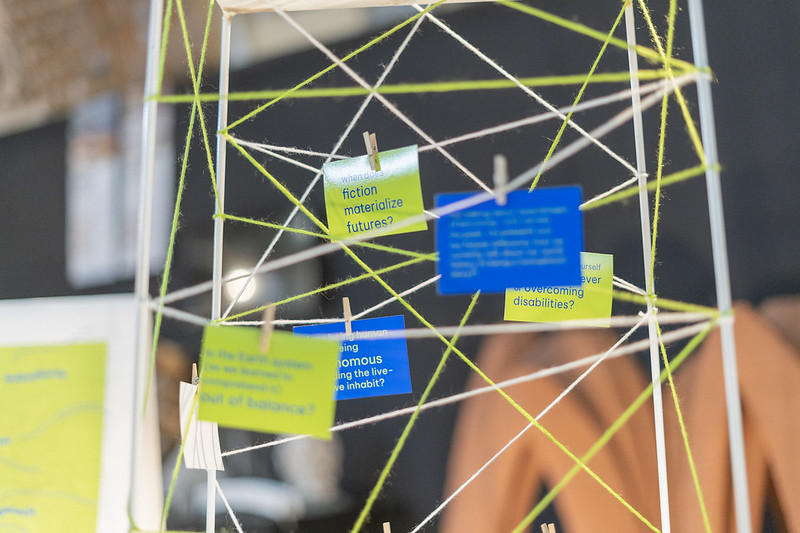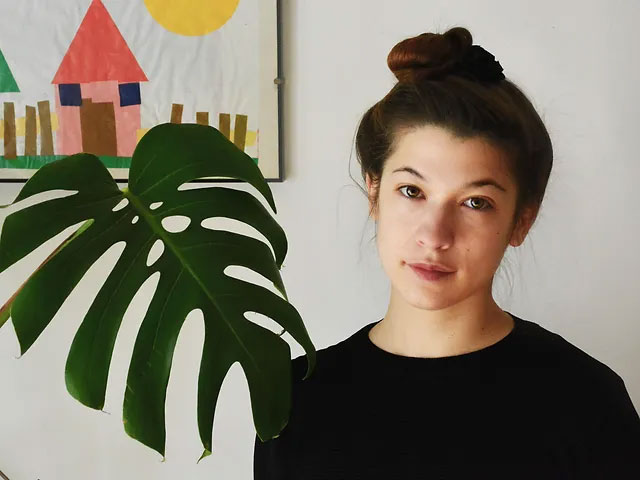Syllabus⇝
The Atlas of Weak Signals - A collective inquiry and embodied research of emerging signals
This workshop focuses on developing and testing co-design methodologies for the creation of new cards for the Atlas of Weak Signals card deck. Students will engage in embodied research activities aimed at exploring alternative and pluralistic futures to identify and visualize weak signals — emerging trends or phenomena that may have significant impacts in the future. Through collaborative design exercises, the students will actively participate and shape the AOWS co-design methodology. Students will gain insights into embodied research methodologies – while contributing to the expansion of the Atlas of Weak Signals card deck. Keywords: Pluriverse, Atlas of Weak Signals, Ontological Design, Transition Design
Learning Objectives⇝
- Explore co-design and future(s) methodologies and their application.
- Explore design themes such as design for the pluriverse, design ontologies & epistemologies.
- Co-develop new themes and cards for the Atlas of Weak Signals through a collective, iterative, critical inquiry design process.
- Collectively review, test, and evaluate co-designed cards to assess their significance.
Methodological Strategies⇝
Different methodological strategies that will allow the development of the learning skills and results. Example: - Horizon Scanning - CIPHER workshop sheet and methodology
Also mention other types of learning strategies associated with the program experience. Example: - Peer learning. - Team-based learning. - Critical Inquiry - Co-design methodologies
Schedule⇝
Workshop sessions will be divided into five on each other building moments.
- Revisiting the AOWS - Collective sharing round and reflection
- Horizon scanning exercise - Materializing trends in the polycrisis
- CIPHER methodology application for identified themes - Utilizing existing methods to frame signals and test it for their validity
- Polarization and provocation - A critical reflection on the identified signals
- Creative expression of the newly identified cards
Deliverables⇝
Each team will be tasked with prototyping a new area of the Atlas of Weak Signals (AOWS) along with its connected cards (up to five weak signals). Throughout this process, teams will reflect on the factors that may have hindered their ability to think critically and explore unconventional ideas. They will consider the tools and resources necessary to uncover unseen and unheard stories, allowing them to identify weak signals effectively. By critically evaluating their approach and identifying potential barriers they are invited to think beyond conventional boundaries and how to include pluralistic approaches in their design practice.
Grading Method⇝
| Percentage | Description |
|---|---|
| 30% | Participation |
| 20% | Prototype development |
| 25% | Collective (group) reflection |
| 25% | Self-assessment |
European Credit Transfer and Accumulation System (ECTS)
2 ECTS
Additional Resources⇝
Design for the Pluriverse - Arturo Escobar, youtube seminar here
Ontological Design - Anne Marie Willis, [article here] (https://www.tandfonline.com/doi/abs/10.2752/144871306X13966268131514)
Design Otherwise - Danah Abdulla
Indigenous Futures Thinking
On teaching and being tought - PARSE, Lindiwe Dovey
Regenerative Practice as Transformative Design Framework - Yari Or
https://yearofclimate.care/en/articles/andras-csefalvay-10-certain-future-events
https://superrr.net/feministtech/deck/
Faculty⇝
Jessica Guy is a designer and action researcher. Jessica’s work focuses on exploring participatory practices, community engagement and capacity-building activities in European research projects on a global and local scale. Jessica holds a Master degree in Design for Emergent Futures organised by the Institute for Advanced Architecture of Catalonia and Elisava Barcelona School of Design and Engineering, in collaboration with the Fab Lab Barcelona and Fab Academy. In the past, Jessica successfully graduated as an Industrial Designer (BA) at the Munich University for Applied Sciences and participated in the acceleration programme X-Futures by Fab Lab Barcelona. At Fab Lab Barcelona, Jessica is leading the global activities of the Creative Europe project Distributed Design Platform and co-leading the Erasmus+ Project Makeademy educational programme. Furthermore, they are the Make Works worldwide coordinator and lead of Make Works Catalonia. Jessica has contributed as a researcher to the European-funded projects Pop-Machina, CENTRINNO and REFLOW.
Olga Trevisan is an Italian visual artist who graduated from I.U.A.V at the University in Venice and holds a Master’s Degree in Local Development from the University of Padua. Over the past ten years, she has been actively involved in European and international cross-disciplinary projects as an art and education facilitator and consultant, focusing on participatory practices and bottom-up strategies. One of her main focuses is to use arts and crafts to promote collaborative methodologies in local communities connecting them to global challenges. In 2022 she supported Centrinno EU project team and is now involved in Distributed Design and Dafne+ as EU Creative action researcher at IAAC | Fab Lab Barcelona.


